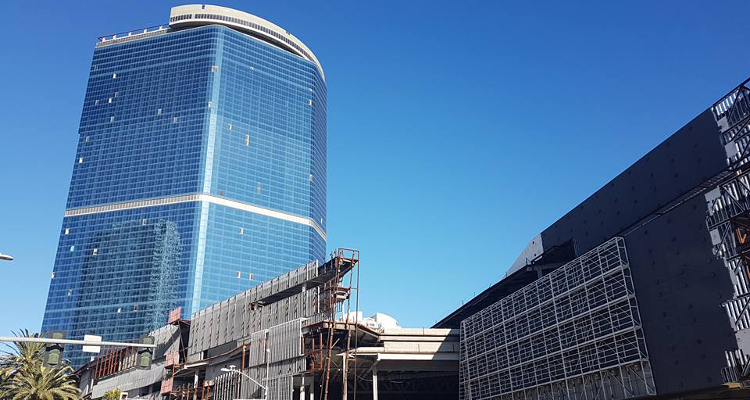In Las Vegas, a partnership being led by real estate firm Witkoff Group has reportedly spent approximately $600 million in order to purchase the long-mothballed and unfinished Fontainebleau Resort Las Vegas.
According to a report from the National Post newspaper, construction on the 63-story Las Vegas Strip property began ten years ago but was halted in 2009 as the global economic recession began to bite. Currently 70% complete, its bluish main tower has since reportedly been used as a training site for local fire fighters and was listed for sale in November of 2015 complete with an asking price of $650 million.
“[The Fontainebleau Resort Las Vegas] is one of the best physical assets in the country, which is one of the reasons we were attracted to it,” read a statement from Steve Witkoff, Chairman and Chief Executive Officer for New York City-based Witkoff Group.
Witkoff reportedly went on to declare that his group wants to “unlock” the property’s growth potential although he did not offer any specific details as to how this is to be accomplished.
Located near the Circus Circus Las Vegas and the SLS Las Vegas Hotel and Casino properties, the Fontainebleau Resort Las Vegas was originally envisioned as a 3,900-room resort casino complete with a convention center and numerous retail spaces. New York financier Carl Icahn paid approximately $150 million to bring the property, which had been set to feature the Nevada city’s second tallest building, out of bankruptcy in 2010 while the new owners could be required to spend upwards of $1.5 billion in order to complete construction.
“Properties that are closer to MGM [Resorts International] properties and Caesars [Entertainment Corporation] properties tend to do better on average daily rates,” gambling analyst Alex Bumazhny from Fitch Ratings Incorporated told the National Post. “Fontainebleau [Resort Las Vegas] is a little bit outside of critical mass. SLS [Las Vegas Hotel and Casino] struggled to ramp up to profitability arguably because of its location.”
Bumazhny reportedly told the newspaper that the future success of the property will now depend on whether there is a “hiccup” in the economy along with how long its new owners are willing to support losses until it becomes profitable, which he explained could take “years”.
“They probably want to open sooner rather than later to catch the current wave of the good economy,” Bumazhny told the National Post.



